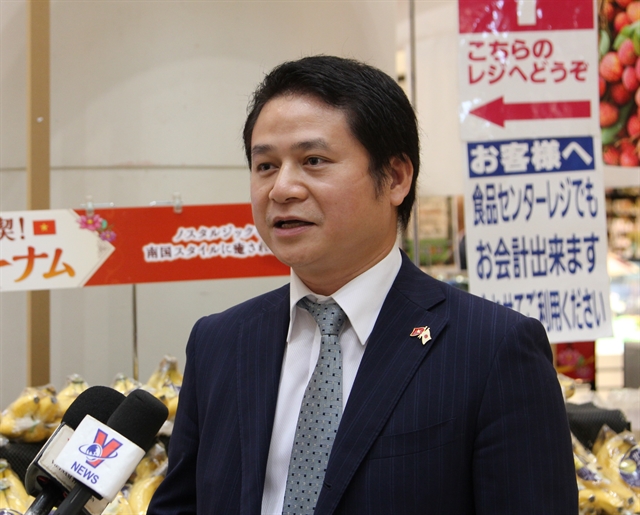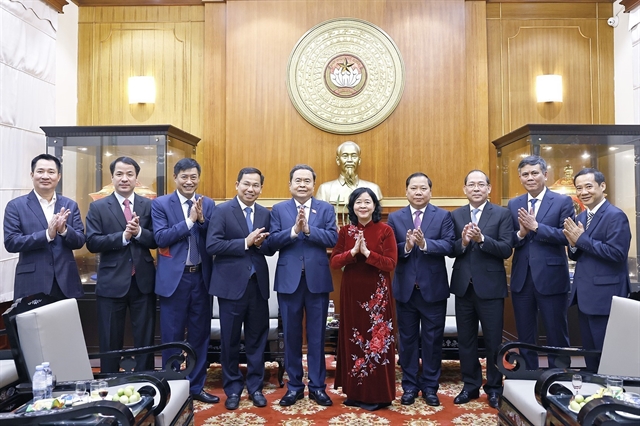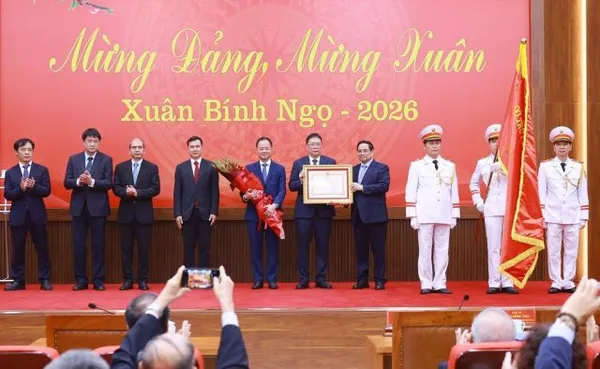_med.jpg) Economy
Economy

 |
| Tạ Đức Minh, Trade Counselor of Việt Nam in Japan. — VNS Photo |
TOKYO — In recent years, the economic ties between Việt Nam and Japan have reached new heights. With a dynamic trade landscape and growing investments, Tạ Đức Minh, Trade Counsellor of Việt Nam in Japan, emphasised the immense potential for cooperation between the two nations.
Việt Nam and Japan officially established diplomatic relations on September 21, 1973. In 2023, the two countries celebrate their 50-year anniversary of diplomatic ties, marking a period of exceptional development and cooperation. The relationship between these nations is currently at its most favourable point since its inception, characterised by a high level of trust.
Japan stands as Việt Nam's top economic partner, serving as the largest ODA contributor, second in labour cooperation, third in investment, third in tourism, and fourth in trade. Moreover, more than 70 pairs of localities from both countries have entered into cooperation agreements, fostering people-to-people exchanges and contributing to the growth of both nations' economies.
Trade dynamics
Việt Nam and Japan have witnessed consistent growth in their trade relations over the past decade. In 2022, Japan was Việt Nam's fourth-largest trading partner (after China, the United States and South Korea), the fourth-largest export market (after the United States, China and South Korea) and the third-largest source of imports (after China and South Korea).
Key Vietnamese exports to Japan include textiles, machinery and equipment, transportation vehicles, wood products, seafood, computers and electronics, footwear, and phones and components. On the other hand, primary imports from Japan encompass computers and electronics, machinery and equipment, iron and steel, automotive components, plastic products, textiles, chemicals, and bags, wallets, and umbrellas.
Notably, Việt Nam has successfully entered the Japanese fresh fruit market, offering products such as dragon fruit, mangoes, lychees, and more, in addition to popular fruits like bananas and coconuts.
In the first half of 2023, total trade turnover between Việt Nam and Japan reached US$21.26 billion, though it experienced a 9.3 per cent decrease compared to the same period in 2022. Việt Nam maintained a trade surplus with Japan of $864.8 million.
Việt Nam and Japan benefit significantly from various bilateral and multilateral Free Trade Agreements (FTAs), including the Việt Nam-Japan Economic Partnership Agreement (VJEPA), the ASEAN-Japan Comprehensive Economic Partnership (AJCEP), the Comprehensive and Progressive Agreement for Trans-Pacific Partnership (CPTPP) and the Regional Comprehensive Economic Partnership (RCEP). These agreements promote trade liberalisation and ease tariff burdens, creating a conducive environment for businesses to thrive.
In an exclusive interview with Việt Nam News, Minh shared that the Trade Office in Japan has been instrumental in connecting the trade needs and interests of businesses in both countries. They employ various communication channels, including email, phone, and social media, to facilitate trade discussions and negotiations.
Additionally, the Trade Office has organised trade promotion activities, collaborating with Japanese organisations such as the AEON Group to host the annual Việt Nam Week in AEON supermarkets in Tokyo and neighbouring provinces. They have also participated in trade fairs and exhibitions like FOODEX Japan, handicraft exhibitions and seafood fairs. Vietnamese businesses have sent product samples to be displayed at these events, resulting in successful connections with Japanese importers.
The trade agency has also actively promoted Vietnamese agricultural and aquatic products to Japanese consumers through initiatives such as distributing free fabric at the Việt Nam Festival in Tokyo and the official announcement of the availability of Vietnamese rice in Japanese markets.
Furthermore, they have established a showroom to display products from Vietnamese enterprises, providing a platform for Japanese customers working at the embassy to explore Vietnamese products and establish business connections.
The trade relationship between Việt Nam and Japan is thriving, driven by the collaborative efforts of various stakeholders. With an array of successful trade promotion activities and a strong legal framework, Minh believes both nations are poised to continue their mutually beneficial economic partnership well into the future. — VNS

_med.jpg)


